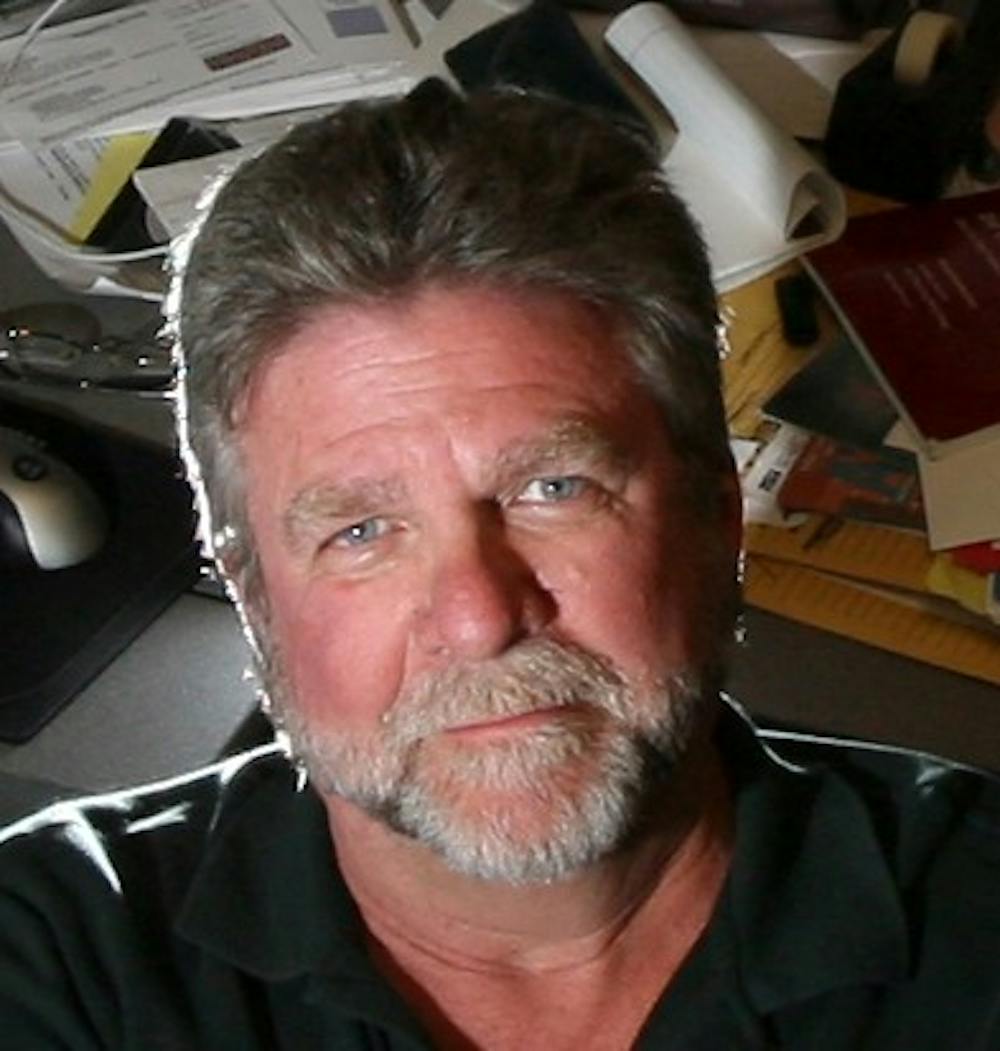Steve Doig, the Knight Chair in Journalism at the Walter Cronkite School of Journalism and Mass Communication, received one of the highest honors in investigative journalism Monday for contributing to a yearlong series of articles on the failings of a California hospital chain.
Doig and California Watch reporters Lance Williams and Christina Jewett were given the George Polk Award for medical reporting for their work on “Decoding Prime,” a series of articles investigating reports that Prime Health Services was upcoding claims sent to Medicare.
“I'm surprised and delighted,” Doig said. “I appreciate that California Watch not only asked for my help, but also let me share on bylines and in the recognition.”
Doig became part of the project in September 2010, while living in Portugal and teaching graduate students at the Universidade Nova de Lisboa as a Fulbright Distinguished Chair.
At that time, two reporters with the nonprofit investigative group California Watch were looking into a number of anecdotes they had received from former employees and patients at Prime Health Services.
Williams and Jewett had received several tips regarding “upcoding” or charging Medicare for more expensive treatment than the patients had actually received.
They needed more than anecdotes to tell the story, though, so Williams and Jewett contacted Doig.
Over the course of a 23-year career in the field, including 19 years at The Miami Herald, Doig developed the ability to use computers in interpreting data. He put this skill toward find patterns in records from Prime Health Services, examining more than 50 million patient records.
“The trouble is if we just rely on the word of a tipster, it would be easy for the hospital to say ‘That was just a disgruntled employee’ or ‘That person just misunderstood,’” Doig said. “But if you can use data to back it up, this goes beyond anecdote to evidence.”
The three published more than 50 articles detailing fraudulent billing at Prime between October 2010 and February 2012. Their articles drew attention to the issue, and the hospital chain is now under state and federal investigation.
Stories Doig worked on before joining the ASU faculty have had similar impacts. He said one of the most important stories of his career was his 1993 Pulitzer-Prize-winning story investigating the reasons why Hurricane Andrew destroyed or damaged 80,000 homes, including his own.
“I wanted to prove whether it was an act of God or our own stupidity,” he said. “And it was our own stupidity.”
For that story, as with the series on Prime, Doig used computers to make sense of large amounts of data. He found a pattern: newer homes were more likely to be damaged by the hurricane.
Doig's findings led Florida to enforce stricter building codes. He won the Investigative Reporters and Editors Award in 1995 for a story about the South Florida criminal justice system, which later led to system reform.
Doig also won the Goldsmith Prize for Investigative Reporting in 1994 for a story on immigration policies.
He joined the Walter Cronkite School of Journalism and Mass Communication in 1996 as the Knight Chair in Journalism. For the past three years, Doig has primarily worked with graduate students, who he teaches the same computer-assisted reporting techniques he uses.
Journalism junior Vaughn Hillyard, a student in Doig’s media research methods class, said the award helped assure him and his classmates that they were learning useful skills.
“It’s awesome to know that people actively winning awards are our professors,” Hillyard said. “I can trust that what we’re learning is resourceful.”
Cronkite School Dean Christopher Callahan said all faculty were aware of Doig's work with California Watch, and many teased him about trying to keep up with his son, investigative reporter Matthew Doig.
Callahan said the award was a tremendous honor for Steve, as it is often considered the capstone of a reporter's career.
“A full-time faculty member doing this level and quality of work is unprecedented,” Callahan said.
Reach the reporter at julia.shumway@asu.edu or follow @JMShumway on Twitter.
Like The State Press on Facebook and follow @statepress on Twitter.




